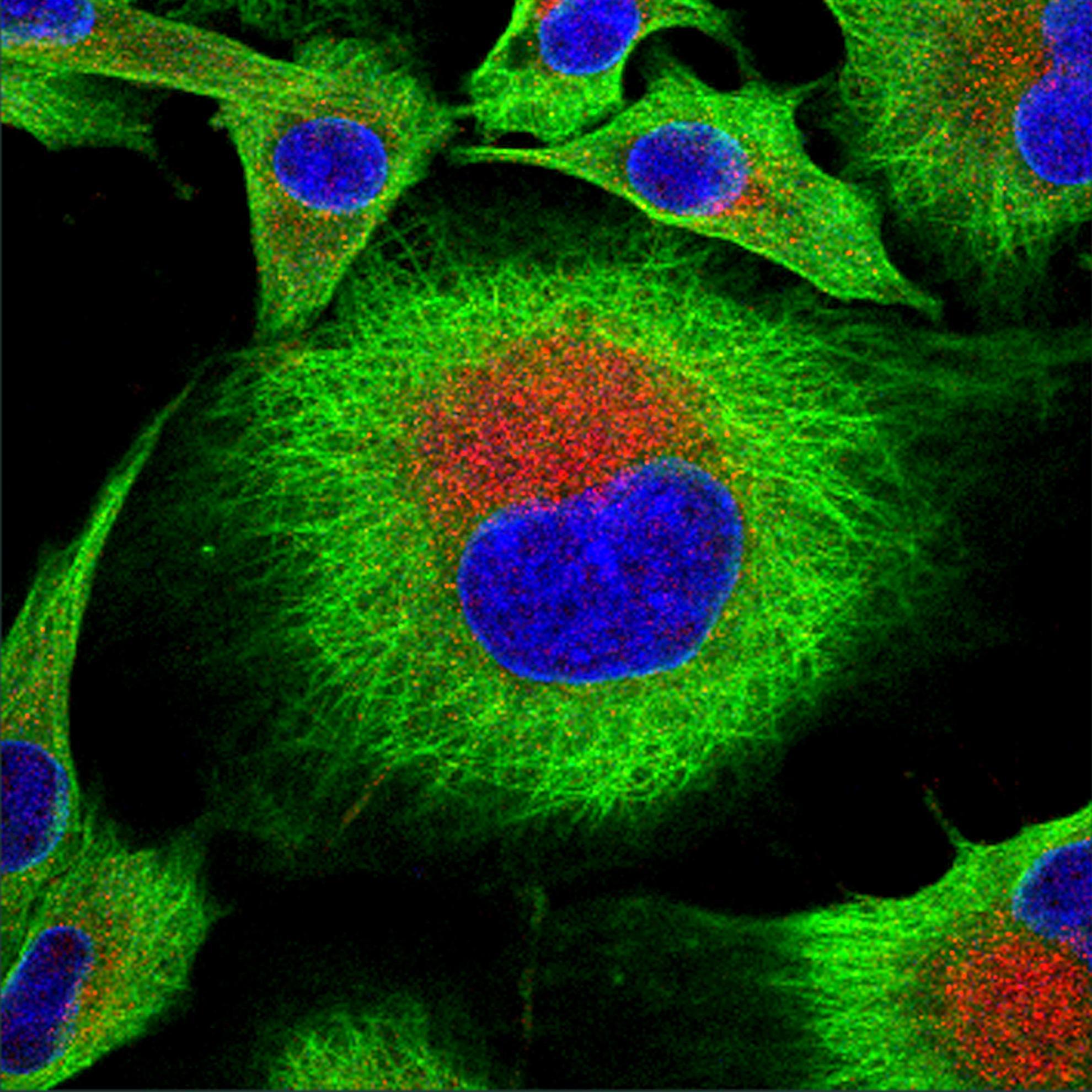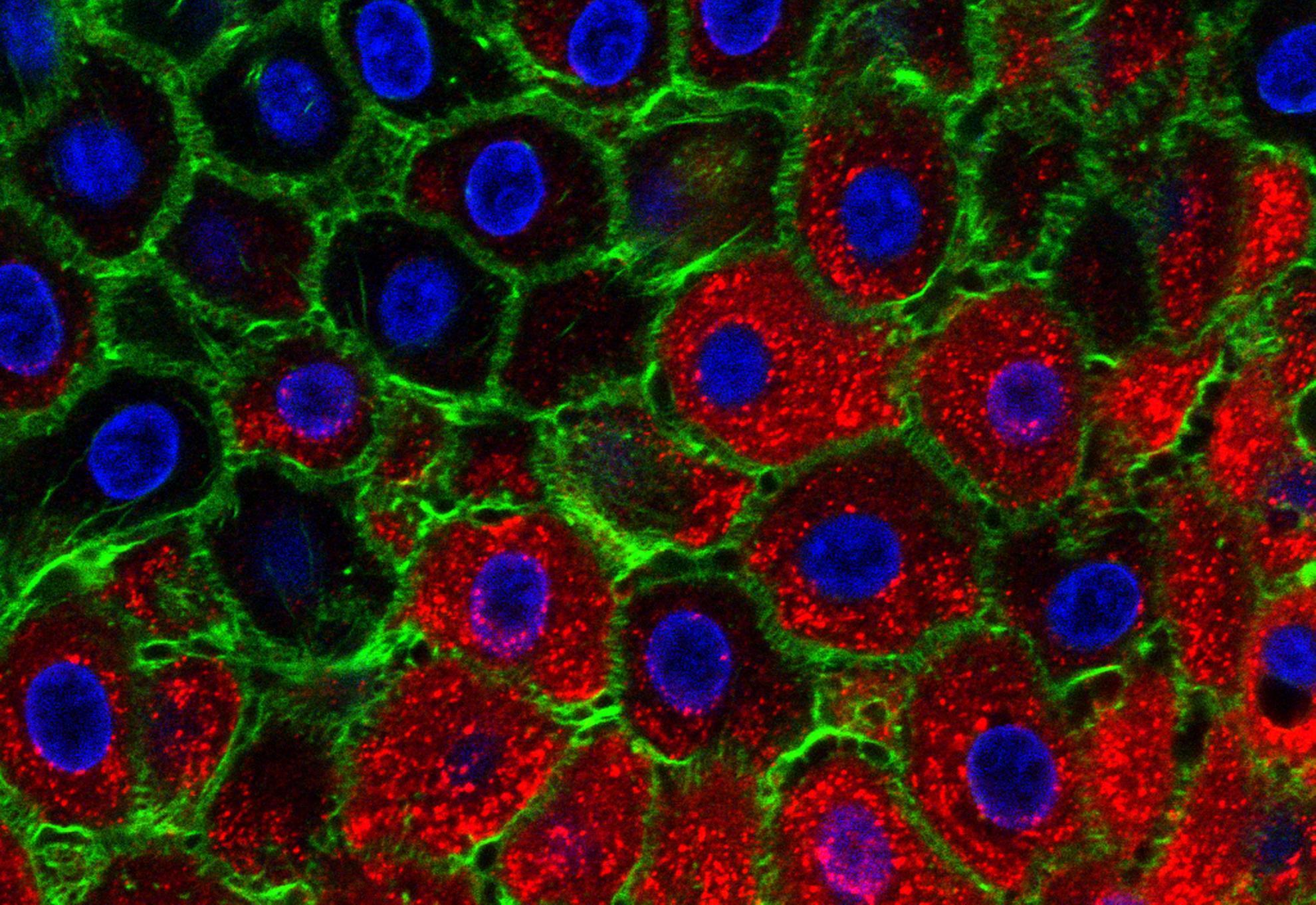The detection of long-lasting memory foot-and-mouth disease (FMD) virus -serotype O-specific CD4(+) T cells from FMD vaccinated cattle by bovine major histocompatibility complex class II tetramer
Foot-and-mouth disease (FMD) is a highly contagious, economically devastating disease of cloven-hooved animals. The development of long-lasting effective FMD vaccines would greatly benefit the global FMD control programme. Deep analysis of adaptive immunity in cattle vaccinated against FMD is technically challenging due to the lack of species-specific tools. In this study, we aimed to identify CD4+ T-cell epitopes in the FMD virus (FMDV) capsid and to phenotype the CD4+ T cells that recognize them using bovine major histocompatibility complex (BoLA) class II tetramer. A BoLA class II tetramer based on the DRA/DRB3*020:02 allele and FMDV antigen-stimulated PBMCs from bovine vaccinates were used to successfully identify four epitopes in the FMDV capsid, three of which have not been previously reported; two epitopes were identified in the structural protein VP1, one in VP3 and one in VP4. Specificity of the three novel epitopes was confirmed by proliferation assay. All epitope-expanded T-cell populations produced IFN-γ in vitro, indicating a long-lasting Th1 cell phenotype after FMD vaccination. VP3-specific CD4+ T cells exhibited the highest frequency amongst the identified epitopes, comprising >0·004% of the CD4+ T-cell population. CD45RO+CCR7+ defined central memory CD4+ T-cell subpopulations were present in higher frequency in FMDV-specific CD4+ T-cell populations from FMD-vaccinated cattle ex vivo. This indicates an important role in maintaining cell adaptive immunity after FMD vaccination. Notably, FMDV epitope-loaded tetramers detected the presence of FMDV-specific CD4+ T cells in bovine PBMC more than four years after vaccination. This work contributes to our understanding of vaccine efficacy.

